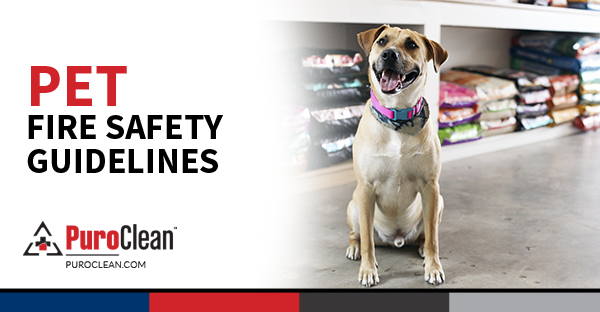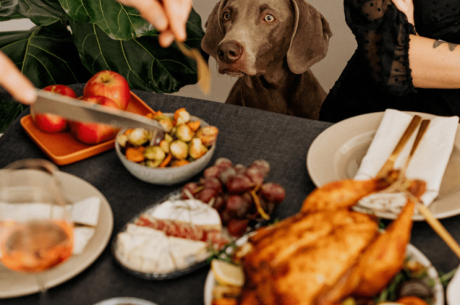 Home fires not only put you and your family at risk, but also your pets. According to the United States Fire Administration (NFPA), an estimated 500,000 pets are affected annually by fires. Moreover, pets are responsible for starting 1,000 fires each year. Below are essential tips on keeping your pets safe from fire:
Home fires not only put you and your family at risk, but also your pets. According to the United States Fire Administration (NFPA), an estimated 500,000 pets are affected annually by fires. Moreover, pets are responsible for starting 1,000 fires each year. Below are essential tips on keeping your pets safe from fire:
Preventing Your Pets from Starting a Fire
- Get rid of stove knobs. A stove or cook top is the most common cause of fires started by pets. If your dog is tall enough to counter surf, remove the stove knobs or protect them when you leave the kitchen.
- Put out open flames. Pets such as dogs are naturally curious and might be drawn to open flames from candles, cooking appliances, and even fireplaces. By investigating an open flame, they might hurt themselves or start a fire. Make sure to extinguish open flames in the rooms where you allow your pets
- Use flameless candles. Some pets can easily knock down candles when agitated or running, so it’s a good idea to replace natural candles with flameless ones. These types of candles use a light bulb that are much less likely to be a fire hazard. Always supervise your pets when real candles are used.
- Secure the fireplace. Even if you have a mesh metal screen in front of your fireplace, a small spark or coal can get through it and land on the carpet or your pet’s hair. Don’t allow your pets to stay in front of the fireplace. For increased safety, upgrade your wood-burning fireplace to an enclosed gas fireplace.
Keeping Your Pets Safe in Case of a Fire
- Include your pets in your fire escape plan and practice your escape routes with them. Provide a pet door for them so they can escape a fire quickly. If you need to confine your pets, keep them in a room or area near an entry.
- Make sure your dog wears a collar and keep him/her near entrances when away from home. Keep leashes at the ready in case firefighters need to rescue your dog.
- Attach a static cling with the number of pets inside your house to a front window. This information helps firefighters locate your pets faster.
- If you keep pets or livestock outside the home, clear the brush, bushes, or other vegetation that might catch fire around the housing and pens where the animals live.
During winter, outdoor animals are exposed to great risks if a snowstorm occurs. Find out how to protect your pets during snowstorms here. Learn more emergency preparedness tips for your pets in this article. For professional fire damage repair or smoke remediation, contact your local PuroClean office.



 PuroClean of Aventura
PuroClean of Aventura